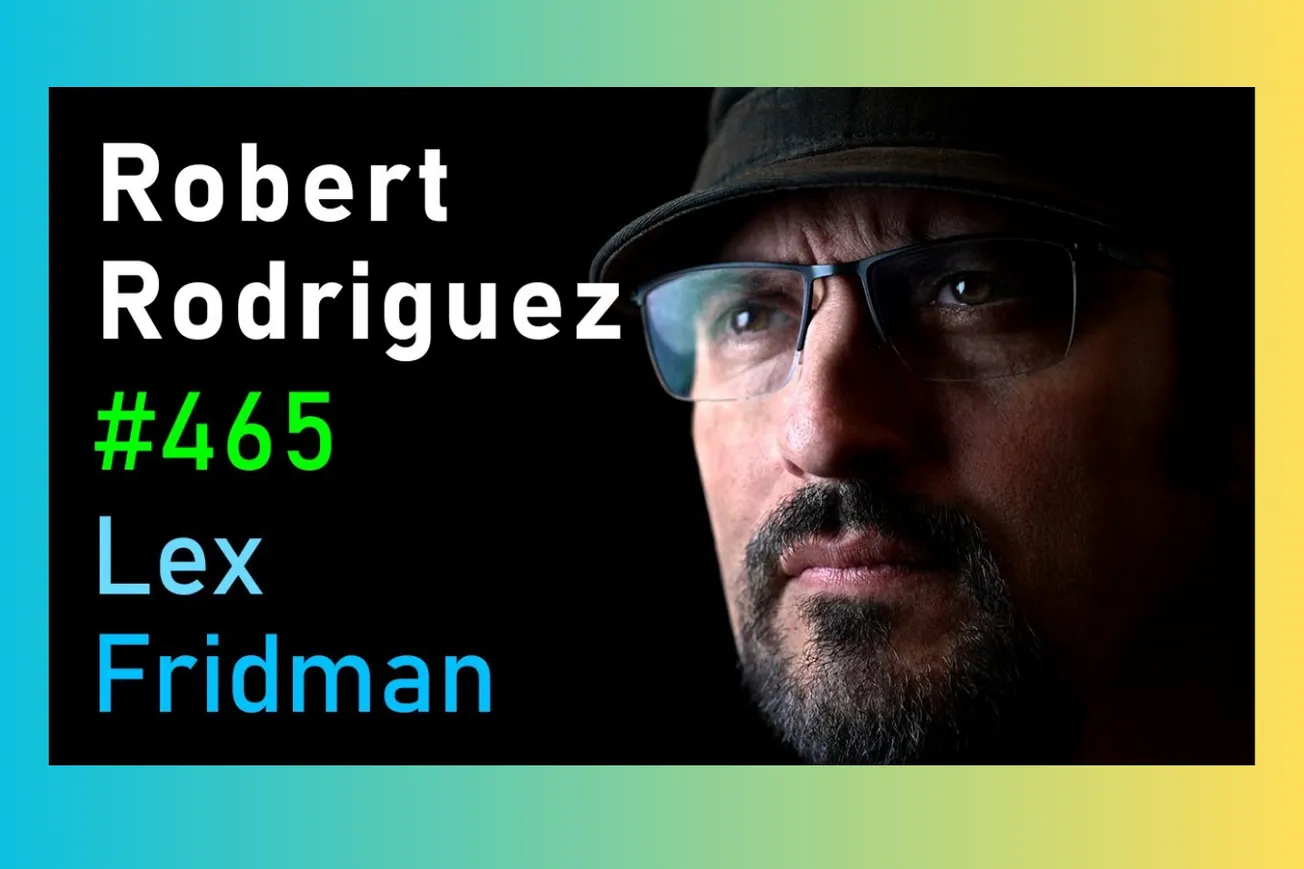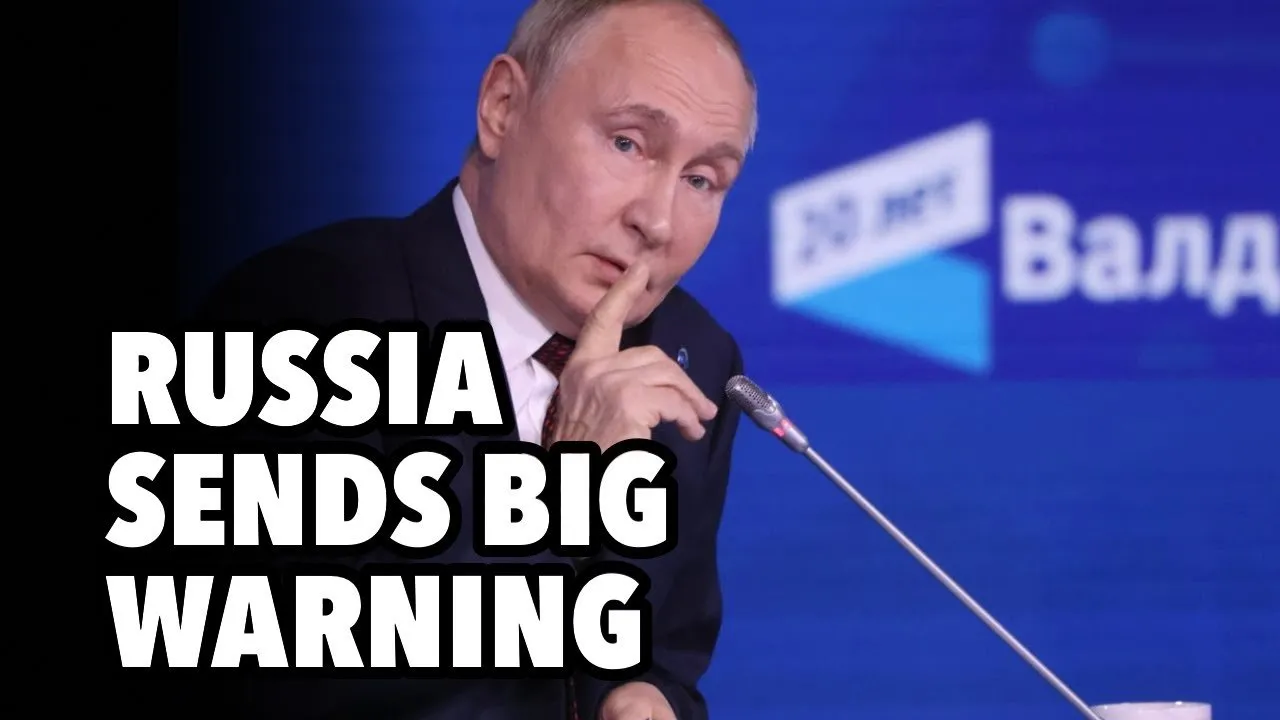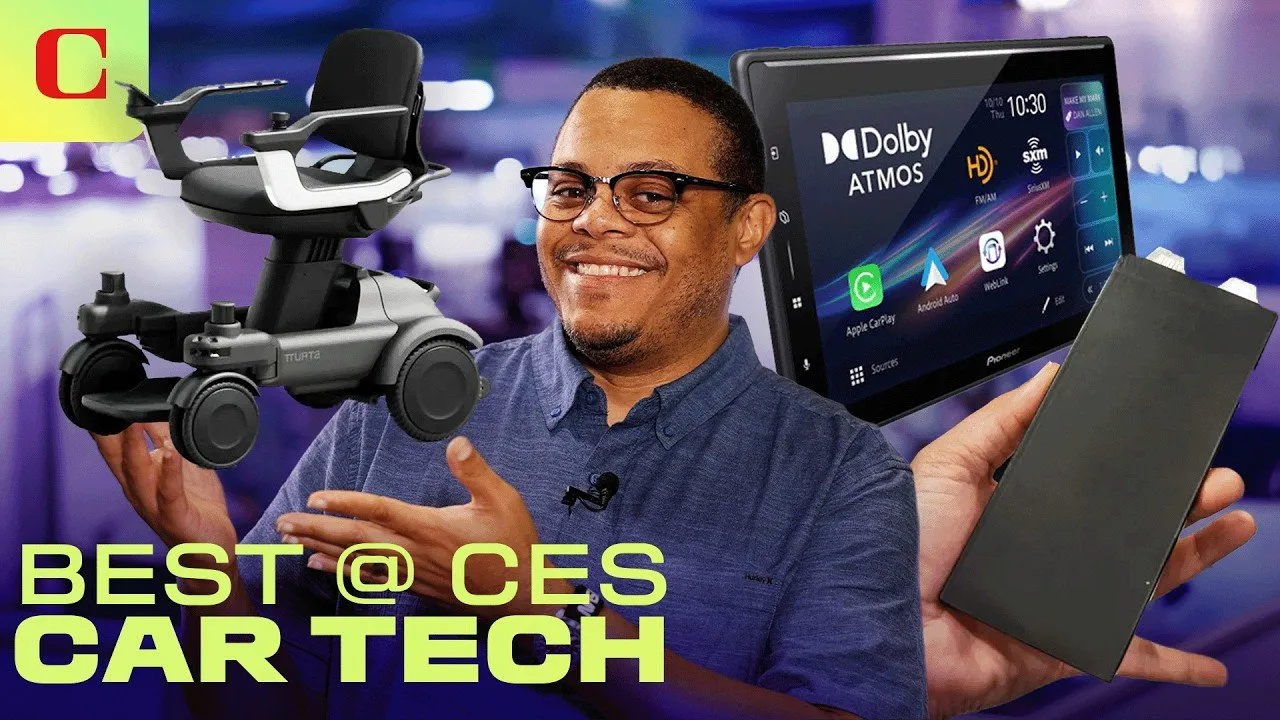Table of Contents
Legendary filmmaker Robert Rodriguez shares his philosophy on creativity, resourceful filmmaking, and manifesting success through embracing failure and following your instincts.
Key Takeaways
- Creating isn't about you - it's about being a clear pipe for the creative spirit to flow through
- Failure contains the seeds of your next success if you're willing to sift through the ashes
- Technical skills plus creativity equals unstoppable - learn every aspect of your craft
- Follow your instincts even when experts tell you it's impossible
- Change your identity, change your life - declare what you are and become it
- Proximity to people who swing bigger than you will elevate your entire game
- When everything falls apart on set, that's when real creativity happens
- Record everything - living is reliving, and memories fade faster than you think
The Creative Spirit Doesn't Need Permission
Robert Rodriguez has built a legendary career on a simple but radical premise: creativity isn't something you do, it's something that flows through you. "I really feel like something else has taken over," he explains about his creative process. "I call it the creative spirit. There's a spirit assigned to all of us that's creative that doesn't have hands. It needs you to pick up the pen."
This isn't mystical nonsense - it's practical wisdom that's guided Rodriguez through decades of groundbreaking filmmaking. From his $7,000 debut "El Mariachi" to visual masterpieces like "Sin City" and "Alita: Battle Angel," Rodriguez has consistently achieved the impossible by getting his ego out of the way.
The key insight? Stop trying to be the source of creativity and start being a conduit for it. "All I need to do is be a good conduit for this thing. Be a good pipe and it's going to come through," Rodriguez says. When you take ownership out of the equation, the pressure disappears and the ideas flow.
Failure Is Your Next Success in Disguise
Most people see failure as an endpoint. Rodriguez sees it as raw material. His philosophy is simple but profound: "Sift through the ashes of your failure, and you'll find the key to your next success is in there. But if you're not looking for it, you don't find it."
Case in point: "Four Rooms," an anthology film Rodriguez made with Quentin Tarantino that bombed spectacularly. Instead of wallowing, Rodriguez examined what went wrong and discovered two game-changing insights. The experience with child actors led directly to the "Spy Kids" franchise. His experiments with anthology storytelling evolved into "Sin City." Both became his biggest successes.
"Sometimes the only way across the river is to slip on the first two rocks," Rodriguez explains. Your instinct led you there for a reason, even if the immediate result isn't what you expected. The universe might be pushing you toward something bigger than your original vision.
This reframing completely changes how you approach risk. When failure becomes research and setbacks become stepping stones, you stop tiptoeing around and start swinging for the fences.
Resourcefulness Beats Resources Every Time
Rodriguez didn't have money, crew, or equipment when he made "El Mariachi." What he had was creativity born from limitation. He shot the entire film without knowing if any footage would be usable, using a borrowed camera he learned to operate over the phone.
"I was literally calling the guy on the phone. How do I use this camera?" Rodriguez laughs. But those constraints forced innovation. When his camera was too loud for sync sound, he developed a revolutionary approach to audio that actually improved the final product. When he could only afford one take per shot, he learned to edit in his head and capture exactly what he needed.
This wasn't about making the best of a bad situation - it was about discovering that limitations unlock creativity. "Sometimes the limitations you have with equipment or location you can use it to make you know take chicken shit turn into chicken salad," Rodriguez explains.
Even now, with access to any technology he wants, Rodriguez deliberately imposes constraints. He made "We Can Be Heroes," Netflix's most-watched movie, for half the budget the studio offered. "When you're spending less, it's a win-win situation and you have more creative freedom because they're going to leave you alone."
Technical Skills Are Creative Superpowers
Here's where Rodriguez separates himself from the pack: he refuses to be just the creative guy who needs technicians to execute his vision. "I believe that that same person, even if they only do music, could literally jump from job to job creativity and do a superior job than most technicians," he explains.
Rodriguez learned every aspect of filmmaking out of necessity, but kept doing it by choice. He operates cameras, edits footage, composes scores, designs effects, and handles sound. This isn't about ego - it's about creative control and speed of execution.
When Lady Gaga wanted to be in "Machete Kills," Rodriguez shot her entire role in half a day by setting up scenes like a conveyor belt. When he needed a complex action sequence for "From Dusk Till Dawn," he invented it on the spot because he understood every technical element required to pull it off.
"The more you know those jobs, the more you know your main job, which is being creative," Rodriguez says. Technical knowledge doesn't limit creativity - it enables it. When you understand the tools, you can push them beyond their intended limits.
Proximity Changes Everything
Rodriguez has worked with James Cameron, Quentin Tarantino, and Steven Spielberg. But he's clear about why those relationships matter: "Just by being around him and working with him, you get by osmosis, you learn stuff and it just ups your game because they're just swing way beyond you."
When Rodriguez told Cameron he was learning to operate a steadicam to save money, Cameron's response revealed the difference in thinking: "I bought a steady cam, but not to operate it. I'm going to take it apart and design a better one." That's the mindset shift that comes from proximity to greatness.
The lesson isn't about networking - it's about deliberately surrounding yourself with people who operate at levels that stretch your conception of what's possible. "You want somebody who's above that," Rodriguez explains. "That's the guy you want to hang out with, not someone who's doing what you're doing."
Identity Shapes Reality
Rodriguez discovered something profound about human psychology: you always conform to your identity. When he hated working out but needed to get in shape, changing his self-talk from "I hate working out" to "I'm an athlete" transformed his entire relationship with fitness overnight.
"It doesn't make sense to me how manifesting works, but it does seem to work," Rodriguez admits. The mechanism is simple: declare a new identity and your behavior automatically aligns to match it. Say "I'm creative" and you start acting creatively. Say "I'm an entrepreneur" and you start thinking like one.
This isn't positive thinking - it's identity engineering. Rodriguez has used this principle throughout his career, from calling himself a filmmaker before he'd made a film to declaring his studio "Troublemaker" and living up to the name.
Don't Blink When They Throw Rocks
Rodriguez learned the most important lesson of his career from Steven Spielberg, who was getting demolished by critics despite making incredible films. When Rodriguez asked how he handled the constant attacks, Spielberg's answer was pure steel: "Oh, Robert, you just don't blink."
"Just don't blink. It's like it's designed to make you blink and you're just not going to blink because you're committing to a body of work," Rodriguez explains. The criticism isn't about your work - it's about testing your commitment.
This philosophy extends beyond handling critics to any obstacle that threatens to derail your progress. Equipment fails, actors quit, budgets disappear, deadlines loom. The external chaos is inevitable. Your response determines everything.
Living Is Reliving
Rodriguez is obsessive about documentation, and for good reason: memory is unreliable. "Anything past 15 years I it's like I'm reading someone else's journal," he admits. Without records, even life-changing moments disappear into the fog of forgetting.
But documentation serves a deeper purpose than memory preservation. When Rodriguez shows his children old home movies, they lean into the screen to see around corners. Compared to memory, even grainy VHS footage is virtual reality.
"Living is reliving," Rodriguez explains. The moments that shape you happen fast and fade faster. By capturing them, you create the ability to return to formative experiences and extract new insights. Pattern recognition emerges. Life's non-linear nature becomes visible.
Trust the Process, Not the Plan
Rodriguez's career reads like a series of happy accidents, but there's a deeper pattern at work. When he made "El Mariachi" as a practice film for the Spanish video market, he had no idea it would launch his Hollywood career. When "Four Rooms" bombed, he couldn't see how it was setting up his biggest successes.
"You have your plan. Just know it's probably all going to fall apart," Rodriguez says. "Then that's when you roll up your sleeves and creatively figure out a way around it. And by the end, you have a result that's better than what you sought out."
This isn't about giving up planning - it's about holding plans lightly. The real work happens in the gap between what you intended and what actually occurs. That's where creativity lives, where innovation happens, where breakthrough emerges from breakdown.
Rodriguez has learned to surf chaos instead of fighting it. When sets burn down, when equipment fails, when actors don't show up, he asks one question: "What's the creative opportunity here?" The universe isn't working against you - it's collaborating with you in ways you can't see yet.
The New Frontier: Brass Knuckle Films
Rodriguez is now applying these principles to his newest venture, Brass Knuckle Films, where audiences can invest in and help create the next generation of action movies. It's vintage Rodriguez: democratic, innovative, and designed to bypass traditional gatekeepers.
"I want the audience to win," he explains. By keeping budgets lean and creative control tight, Rodriguez can make profitable films that serve stories instead of stockholders. It's the "El Mariachi" philosophy scaled up: maximum creativity, minimum bureaucracy, and shared success.
The four-film slate represents everything Rodriguez has learned about resourceful filmmaking, from his days editing on VCRs to commanding million-dollar productions. But the core philosophy remains unchanged: stay nimble, trust the process, and never forget that creativity flows through you, not from you.
Robert Rodriguez's career proves that the biggest barriers to creative success are often self-imposed. Stop aspiring and start declaring. Stop planning and start doing. Stop trying to be ready and start being resourceful. The creative spirit is waiting for you to pick up the pen.
Just don't blink when the world tries to convince you it's impossible.





